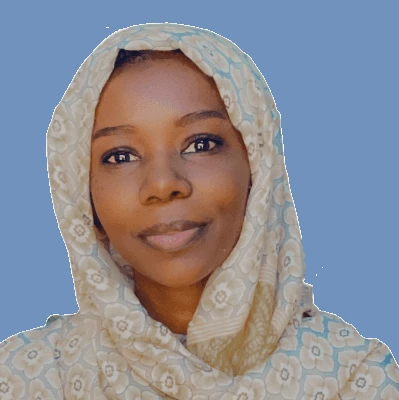 Aisha MohammedElhassan Hamid is the winner of the 2021 Blog4Dev competition for Sudan.
Aisha MohammedElhassan Hamid is the winner of the 2021 Blog4Dev competition for Sudan.
This is one of 38 winning blogs from the 2021 Blog4Dev competition, the World Bank Africa annual writing contest, inviting young people to weigh in on a topic critical to their country’s economic development. Blog4Dev winners responded to the question: How can young people work with their governments and civil society organizations to respond to the impact of COVID-19 and build a stronger post-pandemic economic and social system?
Technology is the heart of the post-COVID-19 era; it keeps people connected to each other and to opportunities despite the social distance hurdle imposed by COVID-19 (coronavirus). Opportunities created by technology within the Information and Communication Technology (ICT) sector are far less than opportunities enabled by technology and issues solved by it in other sectors, including finance, agriculture, education, healthcare, energy, industry, and commerce.
“Dev-Techs” are startups formed by youth, incubated by practitioners, and financially supported by government and civil society organizations. The goal of “Dev-Techs” is to integrate technology in all sectors to support sustainable development and achieve economic growth, diversification, and resilience . The Africa’s private sector accounts for over four-fifths of total production, two-thirds of total investment, and three-fourths of total credit to the economy, and--above all--it generates 90 percent of jobs.
Technological innovation must start within the private sector; then bargaining power of its players will influence the regulations and policies in the public sector.
“Dev-Techs” would offer affordable technical solutions to meet the needs of Small and Medium-Sized Enterprises (SMEs) and let them focus on other innovation aspects, including new ideas, marketing, and value proposition. Also, “Dev-Techs” would collaborate with academic institutions on developing a portfolio of undergraduate projects, which would continuously investigate the issues raised by industrial partners and propose technical solutions to them. Providing affordable technology stimulates its adoption and increases competition between players. Based on my professional experience in digital financial services in Sudan, Mobile Network Operators (MNOs) and Fin-techs have pushed banks to accelerate technology adoption in order to keep up with the competition. On the other hand, “Dev-Techs” would coordinate engaging activities for private and public sectors, including workshops, seminars, and discussion groups. Government involvement in these “Dev-Techs” would help establish a dialogue with policy-makers and accelerate technology adoption through guarantees, enabling environment, and policy reforms supporting access to finance, technological innovation, and marketing of products and services.
Definitely, all of these would create a “favorable business climate”.
Digital exclusion leads to social and economic exclusion; the bright side is that the opposite is also true! Building “strong human capital” relies on acquiring the skills needed in the digital economy. Otherwise, technology will lead to more inequality: Technology is easily accessible for upper-middle class, but accessibility dramatically falls when moving down in the social hierarchy. “Dev-Techs” would close this gap by providing training to help people (especially disadvantaged groups, including women and people with disabilities) possess technical skills on how to use phone, access internet, search for information, share information to the level of buying/selling goods, getting funds, and doing e-payments. Also, “Dev-Techs” would train engineers and managers in digital transformation, digital business models, and innovation management.
Successful achievement of the “Dev-Techs” goals will create “favorable business climate” and build “strong human capital” through the “analog compliments” of the digital economy that are required to obtain development benefits from using technology, as per the World Bank’s Digital Dividends report.
Aisha MohammedElhassan Hamid is the 2021 Blog4Dev winner from Sudan. See the full list of 2021 Blog4Dev winners here, and read their blog posts.


Join the Conversation